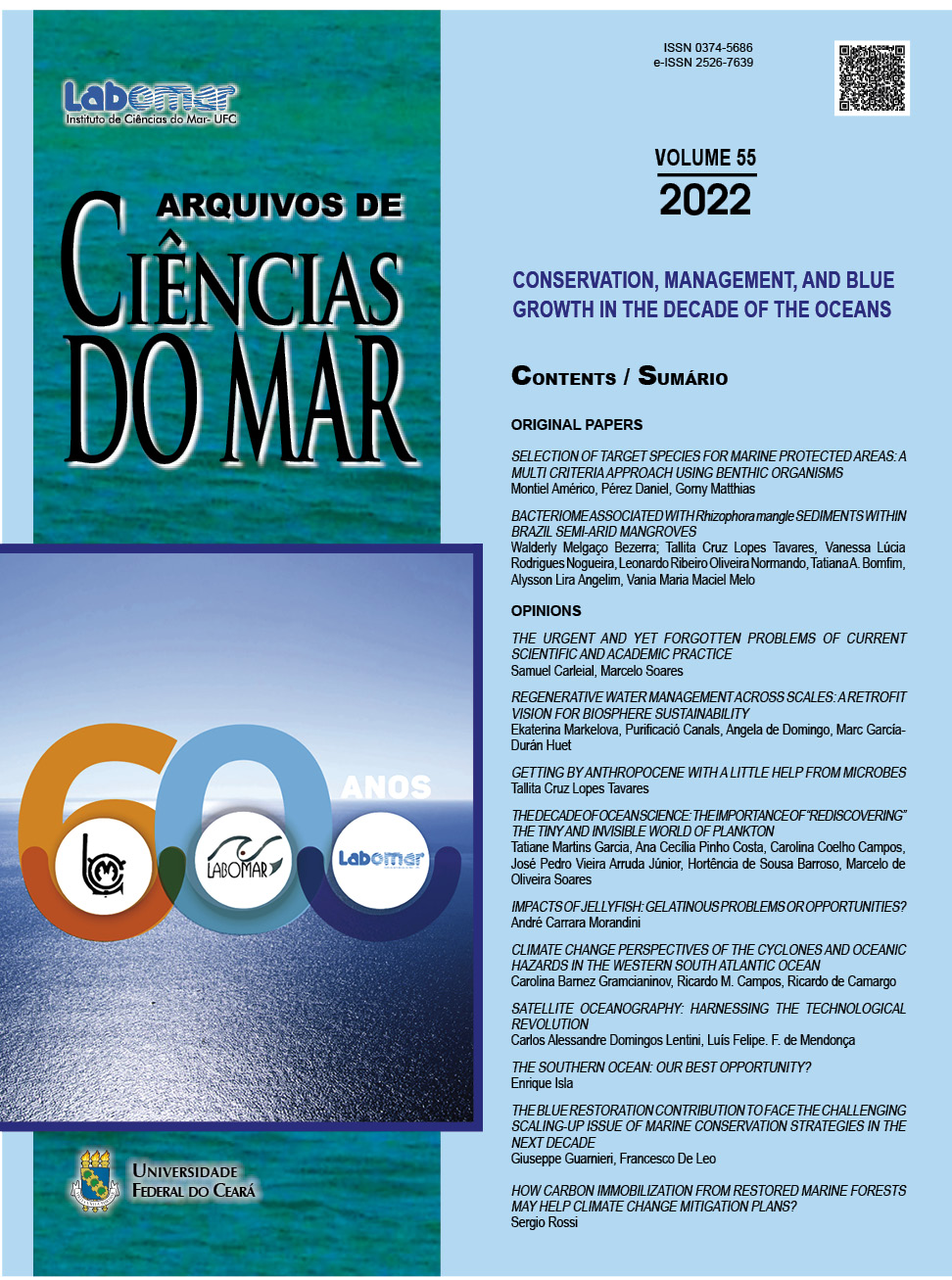POTENTIAL AND REALIZED DIVERSITY OF COASTAL PLANKTON: THE ROLE OF RESTING STAGES IN ECOSYSTEM FUNCTIONING
Diversidade potencial e realizada do plâncton costeiro: o papel dos estágios de repouso no funcionamento do ecossistema
DOI:
https://doi.org/10.32360/acmar.v55iEspecial.78207Resumen
Resting stages are the strategy for species to avoid the variability of environmental conditions. In coastal confined marine habitats, variability of conditions is higher than in the open sea, and bottoms accumulate plankton resting stages in the so-called “marine cyst banks”. The benthic-pelagic coupling generated by this bi-location of plankton, however, is not clearly evident for all the involved species. This result is due to the still scant knowledge of the life cycles and life histories of single species. The study of plankton dynamics from the benthos point of view is useful and informative and it increases the potential complexity of a planktonic community in a confined area.
Keywords: plankton, life cycles, resting stages, cysts, benthic-pelagic coupling, resurrection ecology.
Descargas
Publicado
Número
Sección
Licencia
1. Proposta de Política para Periódicos de Acesso Livre
Autores que publicam nesta revista concordam com os seguintes termos:
- Autores mantém os direitos autorais e concedem à revista o direito de primeira publicação, com o trabalho simultaneamente licenciado sob a Licença Creative Commons Attribution que permite o compartilhamento do trabalho com reconhecimento da autoria e publicação inicial nesta revista.
- Autores têm autorização para assumir contratos adicionais separadamente, para distribuição não-exclusiva da versão do trabalho publicada nesta revista (ex.: publicar em repositório institucional ou como capítulo de livro), com reconhecimento de autoria e publicação inicial nesta revista.
- Autores têm permissão e são estimulados a publicar e distribuir seu trabalho online (ex.: em repositórios institucionais ou na sua página pessoal) a qualquer ponto antes ou durante o processo editorial, já que isso pode gerar alterações produtivas, bem como aumentar o impacto e a citação do trabalho publicado (Veja O Efeito do Acesso Livre).

